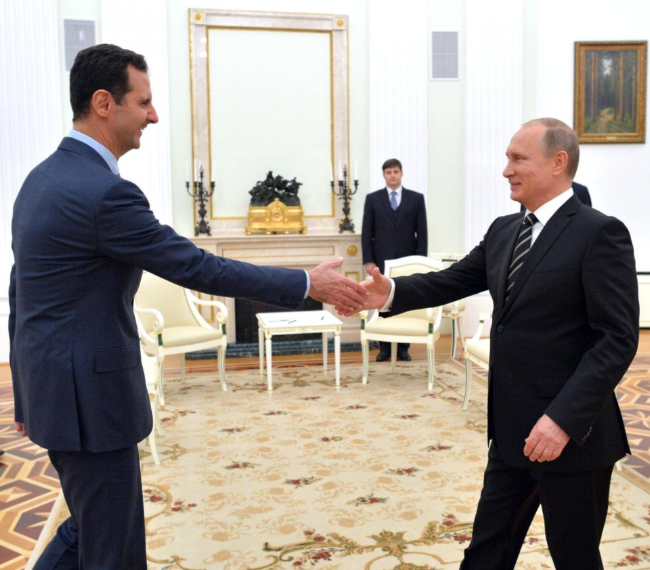Red Lines
By Andrew Quist
On April 13, 2018, the United States, France, and the United Kingdom carried out military strikes in Syria in direct response to Syrian dictator Bashar Al-Assad’s use of chemical weapons on civilians. Announcing the decision, President Trump said of Assad’s behavior, “These are not the actions of man; they are the crimes of a monster instead.”
Assad is a monster for gassing his own people, but he is also a monster for dropping barrel bombs on civilians and deliberately bombing hospitals, ambulances, and schools. The recent military strikes by the U.S. and its allies will do nothing to deter Assad from murdering civilians with conventional weapons. As former Department of Defense official Jasmine El-Gamal wrote in a thoughtful op-ed, “The signal the international community for years has given Assad is that conventional military tactics that may constitute war crimes are acceptable, while chemical weapons use is (sometimes) not.”
If we allow dictators to murder people in mass numbers as long as they don’t cross a “red line” by using chemical weapons, it is reasonable to ask how much value we place on human life.
Commenting on the recent military strike in the publication Syria Deeply, a person living in Syria during the war had this to say about “red lines”:
Honestly, it’s very hard for me to watch how these countries choose these arbitrary red lines and decide to act on them. The international standards and policies that they work from are so far removed from the human lives that are lost. At the end of the day, it is clear that there is no value placed on human beings. For these countries, what is most important is the type of weapon used and whether or not intervening for the sake of saving civilian lives suits their own interests.
After the Holocaust, the international community said it would “never again” allow a genocide to happen, but then we allowed it to occur in Cambodia, Bosnia, Rwanda, and Sudan. For the past seven years we have allowed mass atrocities to occur in Syria. Collectively, we must overcome psychic numbing, the tendency to view far-away deaths as an abstraction, and take action to stop mass atrocities, whether that is arresting dictators and trying them in the International Criminal Court, or using diplomatic and military pressure to make it clear that mass murder will not be tolerated.
After all, we value human life, don’t we?
The above photograph is by Russia Presidential Executive Office, CC BY 2018.

